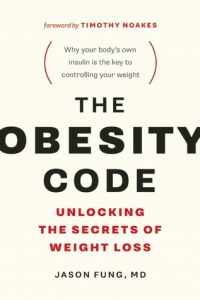
As you already know, I love writing book reviews on my blog. 🙂 I read most of them when I’m away on a vacation, so, again, ten days in the forest turned out productive. Here is my list:
This one turned out a quite practical book. The author describes how good API looks like; how to manage service versions; what options do we have while building our infrastructure; which database should we use – Postgres, Redis, MongoDB, Elasticsearch… how to plan monitoring – Logstash, Kibana; analytics – Grafana, Graphite, StatsD; automatic documentation, Pipeline and CI servers, Service discovery – Consul, Zookeeper.. In short, he makes a reasonable review of currently existing technologies and gives some advice what to consider for automating the build and maintenance of our services.
This book is not printed yet, so you will find lots of typos, but nevertheless, the book was interesting for me. It is based on real cases, problems and solutions (which are not so well documented in product docs). He describes interesting details and containerization technology in depth. I could not memorize everything, as it required practice. If you use docker, I’m sure you will find more than one novelty in the book.
 Microservices AntiPatterns and Pitfalls
Microservices AntiPatterns and Pitfalls
This is a tiny book, which describes problems and antipatterns related to microservices. Despite the popularization, clearly, microservice architecture is not a solution to all problems and has its own place with pros and cons. So, how can we split the system into independent parts without using shared code and shared database, considering that code duplication is evil and also we need accumulated data from many tables simultanously for reporting?
 Building Microservices: Designing Fine-Grained Systems
Building Microservices: Designing Fine-Grained Systems
Recently, I’ve become a fan of ThoughtWorks company. All the books that I liked, turned out to be written by its employees, including Martin Fowler. This one is by Sam Newman. Lots of good advice and answer to interesting questions; Microservices with all their difficulties and advantages in details. I think the book is mostly for architects, as it does not go into technology usage and configuration details.
 Building Evolutionary Architectures: Support Constant Change
Building Evolutionary Architectures: Support Constant Change
Probably, this book is an exception from my fav books from ThoughtWorks, because despite its high rating, I didn’t really like it much. In my opinion, it contains too much theory and repetitions, so I left it after 50%. Continuous Delivery still remains my favourite book about evolutionary architecture.
 Pro REST API Development with Node.js
Pro REST API Development with Node.js
The book seems normal to me. It describes a REST architectural style, hypermedia, HATEOS, Node principles, several libraries for developing APIs – so, nothing new for me, but novice can deepen their knowledge. Probably, the book will get old soon as it was issued in 2015.
This book is a gold mine 🙂 and one of the greatest discoveries for me. All the things that I have read in life about food, nutrition, diets, lifestyle, or have heard from famous dietologist, were completely blown apart. This science is full of contradiction. On one year something is healthy and on another it kills. Do you know a ‘healthy’ lifestyle which you can happily follow for your whole life, without feeling guilt after having an ice cream?
A Canadian doctor, Jason Fung has a classic medical education and 20-year experience in nephrology. He chose to be a kidney doctor, as lots of interesting chemical processes take place exactly there and he loves puzzles.
In his book, Mr. Fung plainly explains what happens in our bodies when we take food. He uses only those researches which lasted for many years and had very large number of participants. He argues that obesity is not a caloric, but hormonal dysfunction and ‘eat less, move more’ philosophy is wrong. He started war with type 2 diabetes, which broke out as an epidemy and, for example, based on stats nearly every other person has a type 2 diabetes or prediabetes in the US. Jason Fung has cured diabetes and obesity in his patients within several months. He has not invented anything new and his method exists from the beginning of mankind. It is even included in most religions, we just lost it from our daily life on some stage of development.
I can talk for hours on this topic, so I better stop here. I will only say, that as long as I have a choice, from now on I only believe to the arguments of this doctor. Finally, everything is in place.
As far as the book is concerned, it has some repetitions, but if you start reading, my advice would be to go till the end, as major points are even more after the middle.
 The Complete Guide to Fasting: Heal Your Body Through Intermittent, Alternate-Day, and Extended
The Complete Guide to Fasting: Heal Your Body Through Intermittent, Alternate-Day, and Extended
This and the previous book have much in common, but this one seems easier to read with less researches and more success stories. Also, it has some practical tips for increasing a fasting period.


